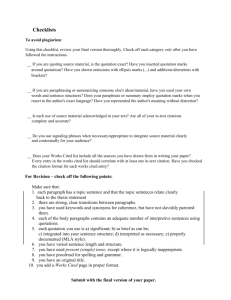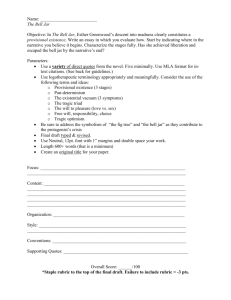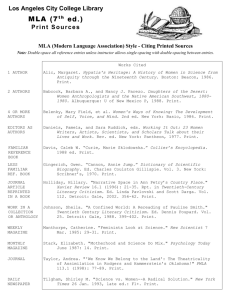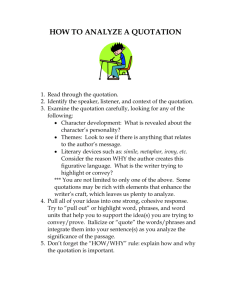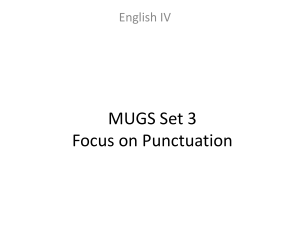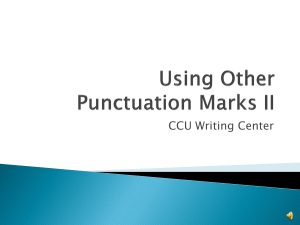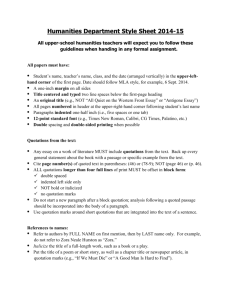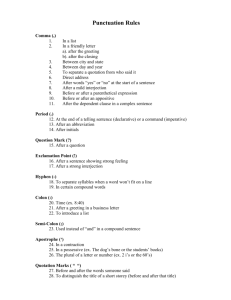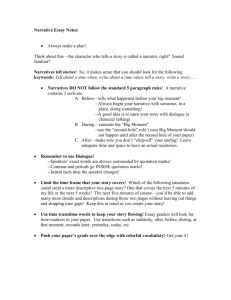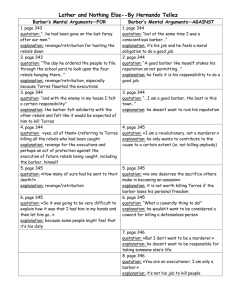Short Quotations ( fewer than four typed lines of prose)
advertisement
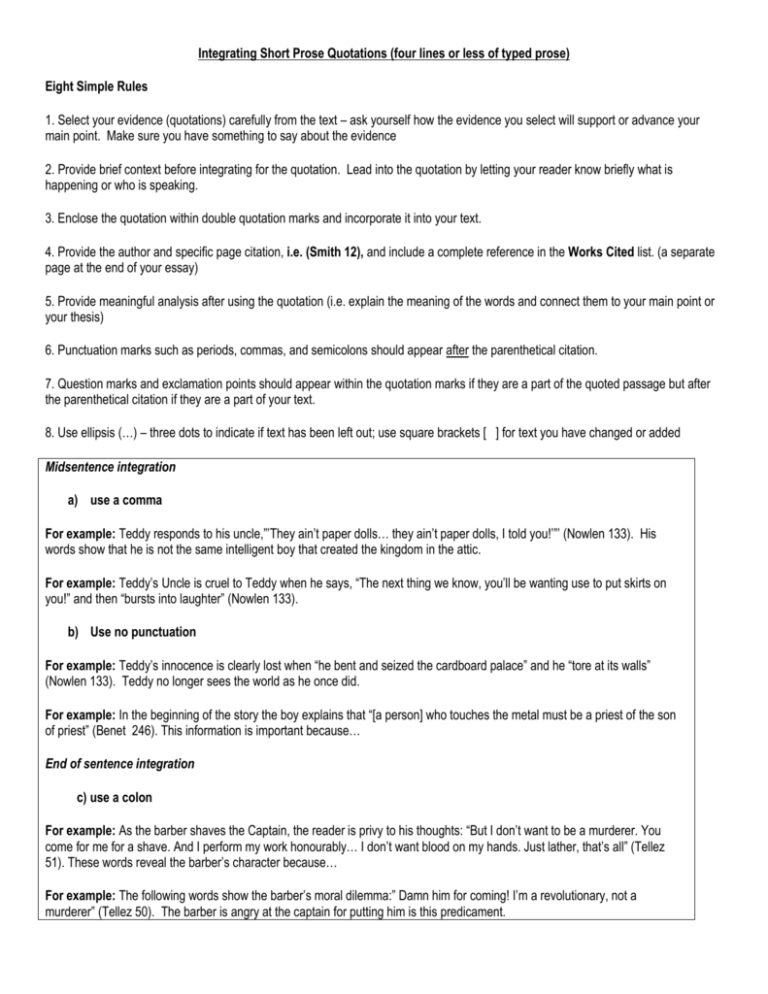
Integrating Short Prose Quotations (four lines or less of typed prose) Eight Simple Rules 1. Select your evidence (quotations) carefully from the text – ask yourself how the evidence you select will support or advance your main point. Make sure you have something to say about the evidence 2. Provide brief context before integrating for the quotation. Lead into the quotation by letting your reader know briefly what is happening or who is speaking. 3. Enclose the quotation within double quotation marks and incorporate it into your text. 4. Provide the author and specific page citation, i.e. (Smith 12), and include a complete reference in the Works Cited list. (a separate page at the end of your essay) 5. Provide meaningful analysis after using the quotation (i.e. explain the meaning of the words and connect them to your main point or your thesis) 6. Punctuation marks such as periods, commas, and semicolons should appear after the parenthetical citation. 7. Question marks and exclamation points should appear within the quotation marks if they are a part of the quoted passage but after the parenthetical citation if they are a part of your text. 8. Use ellipsis (…) – three dots to indicate if text has been left out; use square brackets [ ] for text you have changed or added Midsentence integration a) use a comma For example: Teddy responds to his uncle,”’They ain’t paper dolls… they ain’t paper dolls, I told you!’”’ (Nowlen 133). His words show that he is not the same intelligent boy that created the kingdom in the attic. For example: Teddy’s Uncle is cruel to Teddy when he says, “The next thing we know, you’ll be wanting use to put skirts on you!” and then “bursts into laughter” (Nowlen 133). b) Use no punctuation For example: Teddy’s innocence is clearly lost when “he bent and seized the cardboard palace” and he “tore at its walls” (Nowlen 133). Teddy no longer sees the world as he once did. For example: In the beginning of the story the boy explains that “[a person] who touches the metal must be a priest of the son of priest” (Benet 246). This information is important because… End of sentence integration c) use a colon For example: As the barber shaves the Captain, the reader is privy to his thoughts: “But I don’t want to be a murderer. You come for me for a shave. And I perform my work honourably… I don’t want blood on my hands. Just lather, that’s all” (Tellez 51). These words reveal the barber’s character because… For example: The following words show the barber’s moral dilemma:” Damn him for coming! I’m a revolutionary, not a murderer” (Tellez 50). The barber is angry at the captain for putting him is this predicament.
